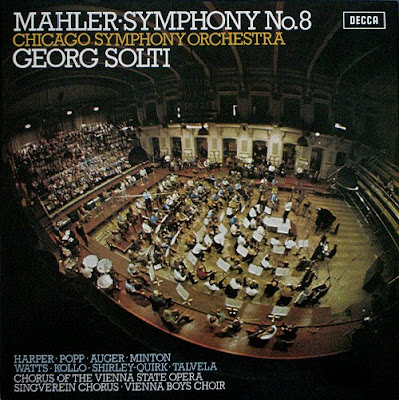Classical music's own version of assisted suicide

Next spring the flood of Mahler releases and re-releases is joined by a new symphony cycle from the Royal Concertgebouw Orchestra. I am sure the Concertgebouw has done its own market research, but my own survey reveals that the cheapest price on Amazon UK for an 11 CD Maher symphony cycle is £16.99 for Gary Bertini's well reviewed interpretations on EMI. Has it occured to anyone else that the death of classical music may in fact be a case of assisted suicide?
* Header image features my original 1972 vinyl release of Georg Solti conducting Mahler's Sympony No 8 as the sleeve design of the new Concertgebouw cycle is simply too ghastly to feature here. Solti's definitive Mahler 8 is, incidentally, currently selling for £5.24.
Also on Facebook and Twitter. Report broken links, missing images and errors to - overgrownpath at hotmail dot co dot uk









Comments
http://www.overgrownpath.com/2011/10/music-matters-but-so-does-transparency.html
The other main sponsor is Unilever which has attracted a variety of criticisms for its activities from political, environmental and human rights activists.
While I understand your point, may I disagree. Styles evolves and modern audiences like to hear recordings made by artists whom they have heard live.
They also like to hear their local ensembles as well, so recording has moved from a few happy few big international names allowed to record to a large number of smaller players.
If the RCO releases a series of live performances done live (ie without a lot of costly post-engineering ...), then breaking even on them can be simpler than in Solti days.
Were these will endure the same legacy of the Solti Mahler 8 is another story.
Best, Antoine
This influences the price expectation of buyers and reduces the perceived value of new releases such as the Concertgebouw cycle. Which squeezes margins and accelerates the vicious downward spiral which classical music currently finds itself in.
But what does it mean?
Assisted suicide perhaps?